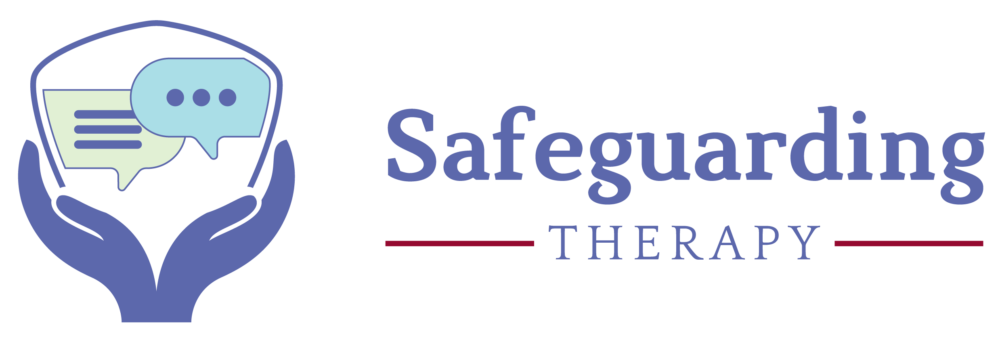
What to Expect in Your First Therapy Session: A Realistic Guide for Beginners
The idea of starting therapy might bring up excitement, curiosity, nervousness—maybe even anxiety.
If you’ve never been to therapy before, you might wonder:
- What actually happens in a session?
- Does the therapist sit in a chair, scribbling notes while I spill my deepest thoughts?
- Do people really lie down on a couch?
- Will they tell me what’s wrong with me and “fix” me?
- Is my therapist silently judging me?
- What if I don’t know what to say or where to start?
Let’s walk through the entire experience—from the moment you show up to what happens afterward—so you know exactly what to expect.
Before Your Appointment
Once you decide to try therapy, you’ll book an appointment—this can be done online, over the phone, or via email, depending on how the therapist runs their practice.
Some therapists may have you fill out an intake form beforehand. This helps them understand what’s bringing you to therapy and what you’d like to get out of it. Don’t stress about getting it “right”—it’s just a starting point.
Arriving at the Office (or Virtual Session)
Walking into a therapist’s office for the first time can feel a little nerve-wracking. You might check in at a reception desk, sit in a waiting room, or simply wait until your scheduled time.
Some therapists work from home offices, and others meet virtually. No matter the setting, the space should feel private, professional, and welcoming.
If you’re doing a virtual session, set yourself up in a quiet, comfortable place where you can speak freely.
It’s All About You
The first few minutes of a session are usually spent settling in. Some therapists might ask, “Where would you like to start today?” Others might guide the conversation with general questions like, “What brought you to therapy?”
Unlike the movies, therapy isn’t about a therapist telling you what’s wrong with you or taking control of the conversation. It’s a space where you set the pace.
“Therapy is a self-guided journey. Sure, it can be guided by the therapist, but usually, they meet you at your level.”
If you don’t know where to start, that’s totally fine. A good therapist knows how to gently guide the conversation without forcing you into anything you’re not ready for.
What Do You Actually Talk About?
A therapy session is a space where anything can be discussed—no topic is too small, weird, or insignificant.
You might talk about:
- Emotions you’ve been struggling with
- Recent events that affected you
- Past experiences that still impact you today
- Patterns in your thinking or behavior
- Relationships, work stress, or personal goals
Your therapist may ask open-ended questions to help you reflect, challenge unhelpful thought patterns, or guide you toward new perspectives.
Therapists don’t expect every session to be life-altering (and you shouldn’t either!) Sometimes, just expressing what’s on your mind is progress. Other times, therapy helps you uncover patterns that no longer serve you.
“If you’re willing to go deeper, good therapists will meet you there and eventually help you reach new levels you may not have gotten to on your own.”
Wrapping Up the Session
As the session winds down, your therapist might:
- Summarize key points from the conversation
- Offer something to think about before your next appointment
- Ask if you’d like to schedule another session
Some therapists give optional “homework,” like journaling, practicing a new coping skill, or reflecting on something from the session.
Therapy Isn’t About Getting Quick Fixes
One of the biggest misconceptions about therapy is that the therapist gives you all the answers. In reality, their job is to help you find your own answers in a way that feels right for you.
Instead of saying, “Here’s exactly what you should do,” a therapist might ask, “How do you feel about that option?” or “What has worked for you in the past?”
“Therapy is less about receiving instructions and more about gaining insight into yourself so you can make your own decisions with clarity and confidence.”
You Won’t Always Leave Feeling “Fixed”
Not every session will feel like a breakthrough. Some days, you might walk out feeling lighter, like you just let go of something heavy. Other days, you might leave with more questions than answers.
Remember, it’s all part of the process.
“Therapy isn’t about immediate solutions—it’s about long-term healing and self-discovery.”
The real changes often happen between sessions when you apply what you’ve talked about to your daily life.
Synergy Matters More Than You Think
The connection you have with your therapist is one of the biggest factors in whether therapy will be helpful for you.
You should feel safe, heard, and respected. If something feels off, it doesn’t mean therapy isn’t for you—it might just mean the therapist isn’t the right fit. And that’s okay! Finding the right one can make all the difference.
“A good therapist is worth their weight in gold because they listen and read their clients well so they can effectively guide you toward real growth.”
Red Flags: What Should NOT Happen in Therapy
While therapy is a deeply personal experience, there are certain things that should never happen in a session. If you notice any of the following, it may be time to find a new therapist:
🚩 Judgment or criticism – You should never feel ashamed of your thoughts, feelings, or experiences.
🚩 Overstepping professional boundaries – If a therapist shares too much about their own life, pushes their beliefs on you, or tries to create a relationship outside of therapy, that’s a red flag.
🚩 Lack of listening or engagement – A therapist should be present and engaged, not distracted or dismissive.
🚩 Telling you what to do – Therapy is about guidance, not orders. If your therapist insists on specific choices without considering your needs, that’s a concern.
🚩 Not respecting your limits – While therapists encourage growth, they should never pressure you into discussing something you’re not ready for.
🚩 Any form of touching – There should never be physical contact between you and your therapist. If it happens, leave immediately and report it.
A healthy therapy experience should feel safe, supportive, and empowering. If something feels off, trust your instincts—there are many great therapists out there who will honor your healing journey in the right way.
Therapy Is a Commitment to Yourself
“At its core, therapy is about investing in yourself.”
It’s not just a place to vent—it’s a process of learning, healing, and growing. And while it may not always be easy, it’s one of the most valuable things you can do for your mental and emotional well-being.
So, if you’ve been wondering what therapy is really like, the best way to find out is to try it for yourself. You don’t have to wait for a crisis. You don’t need to have it “bad enough.”
Therapy is for anyone who wants to better understand themselves, improve their relationships, and move through life with greater ease and self-awareness.
And that includes you.

